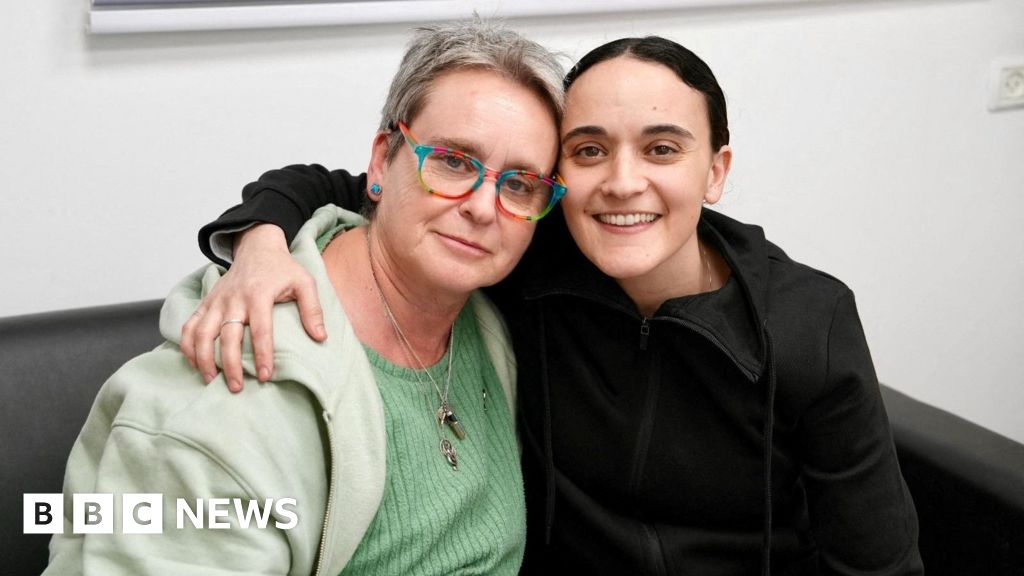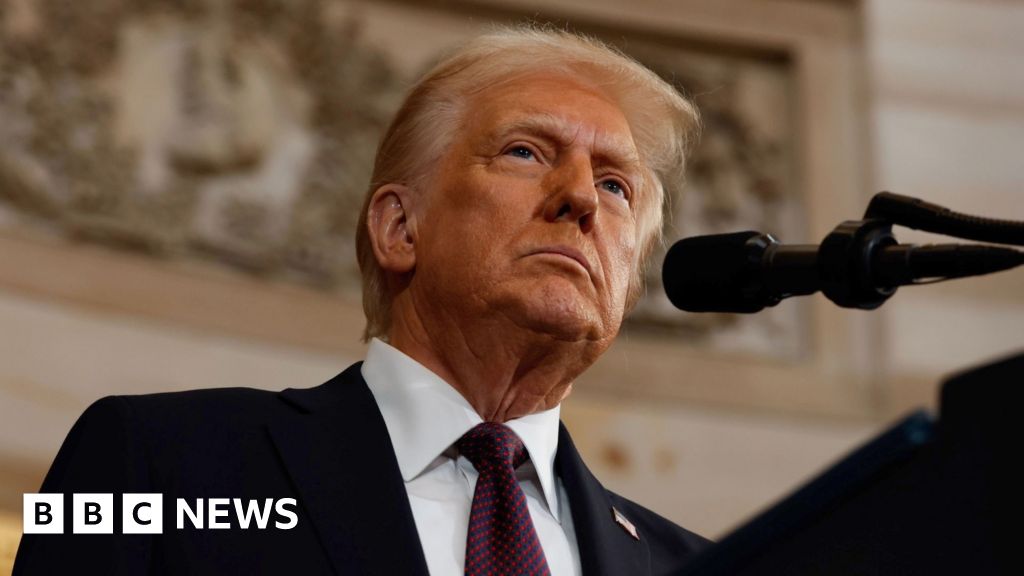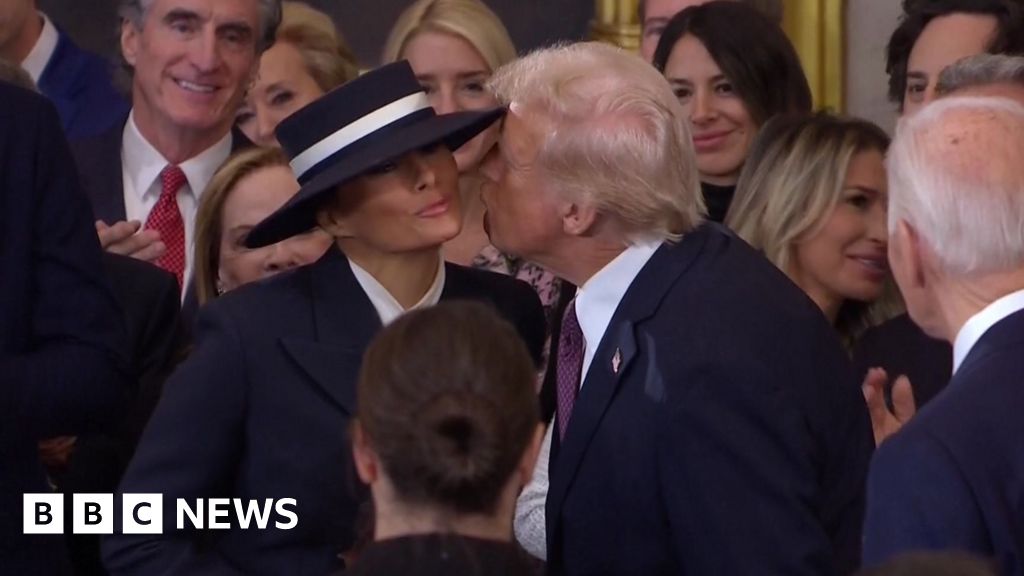ARTICLE AD BOX
59 minutes ago
By Barbara Plett Usher, BBC Africa correspondent
South Africa's African National Congress (ANC) will invite other political parties to form a government of national unity, its leader President Cyril Ramaphosa has said.
It comes after last week's election in which the ANC lost its majority for the first time since the end of the racist system of apartheid 30 years ago.
Mr Ramaphosa said the ANC acknowledged people's complaints, and he called for a national dialogue to help rebuild social cohesion.
Political parties have just over a week to form a government before parliament convenes to elect the country's president.
Under South Africa's proportional representation system, for a government to have a guaranteed majority it would need to be formed of parties which together got more than 50% of the vote.
The ANC took a 40% share, with the centre-right Democratic Alliance (DA) getting 22%, the MK party of former President Jacob Zuma won 15% and the radical Economic Freedom Fighters (EFF) 9%.
- Behind the 'Zuma tsunami' in South Africa
- Can South Africa's ANC reinvent itself?
- Who's up, who's down - and why
Mr Ramaphosa spoke late on Thursday after the ANC's National Executive Committee (NEC) held a marathon meeting in Johannesburg.
“We agreed to invite political parties to form a government of national unity as the best option to move our country forward,” Mr Ramaphosa said.
“In establishing a government of national unity, we will be drawing on an experience with which South Africans are familiar and which served our country well at a time of great difficulty.”
He was referring to South Africa's first democratic government, formed in 1994, which had the ANC’s Nelson Mandela as president working with his former enemies in the National Party, which had implemented apartheid.
It also included the Inkatha Freedom Party, a conservative party with an ethnic Zulu base, whose supporters had frequently clashed with ANC activists, leading to thousands of deaths.
The ANC faces a difficult task as the next three biggest parties represent starkly different ideological and economic programmes.
But Mr Ramaphosa said such differences would not “preclude the possibility of working with any party so long as it is in the public interest” and in keeping with a set of basic principles, including those of respecting the constitution and rule of law.
Analysts say taking this broad approach could allow the ANC to avoid choosing a coalition partner that may be unpopular with its base, or at least appease some members before attempting a narrower coalition if the national unity talks failed.
It has already held “constructive discussions” with DA, the EFF and three smaller parties.
Mr Zuma’s uMkhonto weSizwe (MK) party has refused to accept the election result or join a coalition as long as Mr Ramaphosa remains president.
But it issued a statement late on Thursday saying it had held an initial engagement with the ANC and a meeting would follow shortly.
Mr Ramaphosa said the ANC had appointed a five-member task team to approach all parties that had stated their intention to advance the interests of the South African people.

 7 months ago
21
7 months ago
21








 English (US) ·
English (US) ·